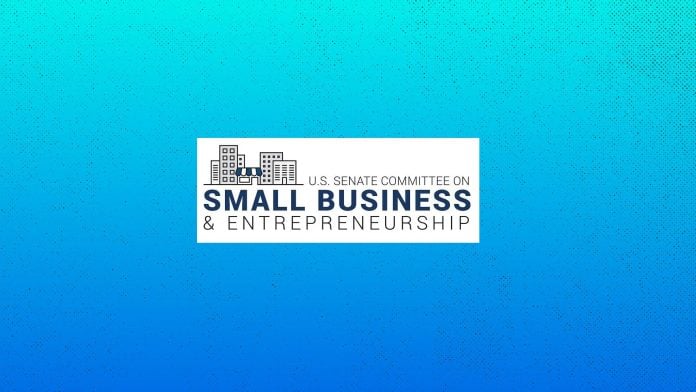In a significant move to bolster national security and promote innovation, U.S. Senate Small Business and Entrepreneurship Committee Chair Joni Ernst (R-Iowa) is championing the INNOVATE Act. As national security leaders increasingly express concern over foreign adversaries, especially China, the Act aims to reform the Small Business Innovation Research (SBIR) and Small Business Technology Transfer (STTR) programs, which face expiration on September 30.
This legislation has the potential to make a profound impact on small businesses, which are often the backbone of innovation in the United States. By streamlining funding processes and safeguarding intellectual property, the INNOVATE Act is designed not only to protect but also empower American entrepreneurs in cutting-edge sectors.
“The program must evolve to keep pace and drive improved results. The INNOVATE Act, led by Sen. Joni Ernst, addresses these concerns through a common-sense series of reforms,” said Ernst during a recent press conference. This sentiment is echoed by industry leaders who view the enhancement of these programs as vital for maintaining a competitive edge in technology and defense.
American businesses face mounting pressure as China increases its research and development spending to an estimated $55 billion by 2025. Ernst stated, “When we’re letting our innovation programs get exploited, every month of delay costs America competitive advantage.” The urgency to act is palpable, with the INNOVATE Act positioned as a crucial step toward securing the nation’s technological leadership.
The revised SBIR/STTR programs are not just about funding; they aim to ensure that American intellectual property remains secure from foreign espionage. “If we are serious about preserving our technological superiority and preparing for tomorrow’s threats, we must support innovators who can deliver faster, smarter, and more affordable solutions,” emphasized Ernst.
For small business owners operating in areas such as autonomy, robotics, and advanced defense technologies, the INNOVATE Act promises to open new doors. Michael Robbins, President and CEO of the Association for Uncrewed Vehicle Systems International, highlighted the importance of these programs: “Small businesses are critical to American innovation. The INNOVATE Act ensures these programs remain agile, secure, and focused on transition.” This is particularly relevant for companies reliant on government contracts and those looking to commercialize their research more effectively.
Implementing these changes will not come without challenges. Small business owners should prepare for adjustments to existing systems and practices as compliance regulations tighten. The focus on safeguarding intellectual property means businesses will need to be more vigilant and proactive in protecting their innovations from potential foreign threats. This may involve investing in enhanced security measures or legal counsel to navigate new regulations.
While the legislation aims to streamline processes, small business owners may face hurdles in meeting the proposed standards for funding. Understanding the nuances of the new criteria will be essential for securing support from these programs. Business owners will need to stay informed and agile to adapt quickly to any legislative shifts that may influence their operations.
The INNOVATE Act is more than a legislative piece; it represents an opportunity for small businesses to contribute significantly to national security and innovation. As Ernst stated, “Congress must continue delivering for small businesses and build upon the momentum of the One Big Beautiful Bill.”
For small business owners looking to fuel their growth and embrace innovation, the INNOVATE Act provides a framework not just for survival but for thriving in a competitive landscape. The focus on protecting U.S. intellectual property adds a layer of reassurance that taxpayer-funded innovations primarily benefit American interests and security.
As the deadline for the current programs approaches, the urgency for small business owners to engage with these changes cannot be overstated. Embracing this moment of reform may well determine the next wave of American innovation in critical sectors.
For more information, view the original release here.
Image Via BizSugar



